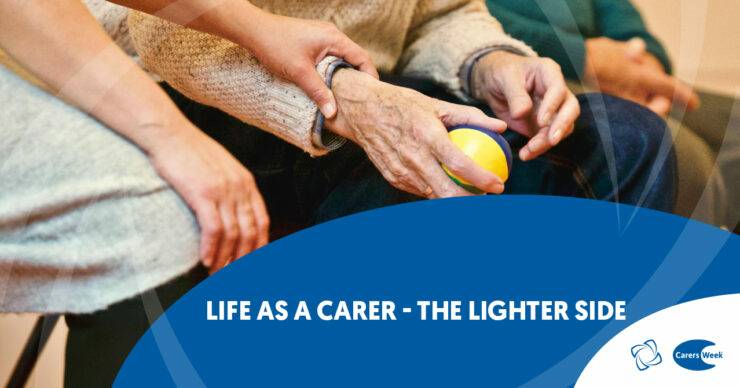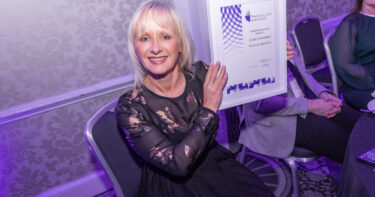
14
Jun 2024
Life As a Carer – The Lighter Side
In June 2023, around 10 million unpaid carers in the UK were taking care of sick or disabled family members.
Many people have multiple responsibilities; like taking care of family, managing a home, and working. This can include being a parent or sibling. It’s tough when you have many tasks to do at once and can leave you feeling overwhelmed. You may wonder how long you can handle it all.
Many groups in communities provide help and guidance to people who have suddenly become caregivers. They offer practical support and advice.
I faced some situations when my son was born. He had quite complex physical disabilities. I had a two-and-a-half-year-old daughter and a husband who worked long, often unsociable hours.
Ben’s formative years
When my son Ben, was born we had no idea that he would have a host of issues with his bones and joints. Affecting initially his hip, then knee and both feet which meant that at a week old we brought him home from hospital with both of his legs in cast, not something any new parent expects. This situation was to last for majority of his formative years.
However, it is something that we just got on with, explaining to his older sister that he was unwell but that the doctors were looking after him. He has had countless trips to the operating theatre during his life, many of which as a very young child which left us with some unusual problems to overcome as most adaptations and aids are for adults.
At 19, we joked about the challenges he had as a baby. In his first year, he wore leg casts. Then, from his first birthday until he was almost two, he had a spica cast. This cast started from under his arms and went all the way down to his toes on both legs. It also had a bar in the middle for extra support because it was heavier than his body.
Anyone who has met a baby or toddler knows how messy they are, Ben was very independent and wanted to feed himself and absolutely loved Weetabix, I can imagine lots of people know where this is going …. how do you clean dried Weetabix off a child who is more plaster cast than skin?
Well, with a bit of thought, I came up with a slightly unorthodox solution. At bath time we taped him in a bin liner from the top of his cast with surgical tape. Then wrapping him in bath towels to be sure that the plaster remained dry, laying on the draining board, bizarre but effective.
Playing in the snow also involved bags and tape, there was a bit of a theme there, so he could enjoy doing the same things as other children.
Throughout the time he was in a cast, one of our challenges was that he would pull himself, army style, around the ground floor of our home. This give him some impressive upper body strength, but left a trail of plaster and rivulets in the carpets.
Growing up at home
Funnily enough, our home still has all wood and tile floors downstairs. Although, that meant that when he started using a wheelchair as he got older, not only did that upper body strength serve him well he realised that with some practice he could effectively drift around corners. That may have been around the same time I noticed my first silver hairs! It also led to a very enthusiastic hug and a popped rib; they do say that love hurts.
He reminisces sometimes about the Christmas when he was at primary school. Having just had knee surgery in early December but not wanting to miss school and all the fun of the festivities. He decided he was going to school in a wheelchair.
After the first day, for the safety of both staff and pupils, I attached sleigh bells to his chair, as that child could achieve some amazing speed and stealth. Zooming around in a bright green wheelchair, clearly nothing stopped him for long.
There were days when I was cleaning tyre marks from the floor that I wondered what my life had become, then realised that it was just part and parcel of being a Mum to an amazing, resilient child.
Taking him out presented it’s own challenges. Sadly there were numerous occasions when people thought that I had hurt him. This resulted in some upsetting confrontations.
One lady went so far as to ask my daughter, then about 5 or 6 years old if I hurt her too. It saddened and frustrated me to have to deal with this on top of everything else.
The importance of humour
Humour won out, and my husband and I would see how we could shock those people the most. We commented on how maybe we shouldn’t let a toddler ride a motorbike, shouldn’t let him play on the roof etc, it was a coping mechanism. Also, some lovely people we met during that time. Those who would ask if it was ok to ask us about his condition and comment what a smiley, happy child he was.
One of his favourite memories was when he was 10, insisting that he wanted to go to my friend and colleague’s wedding only days after surgery. Along we went after giving him his pain meds so he was comfortable and pretty happy! Unfortunately (for us), they had a sweet cart, this led to other children insisting that they would take him for sweets, they were lovely with him.
However, sugar, E numbers and pain meds make for quite a giggly combination and the following morning he experienced his first ‘hangover’ as the sugar rush wore off and he asked exactly what had happened the previous evening.
As you can tell, humour has been a very big part of my family dealing with the years of treatment, it still is as his treatment and surgeries continue as Ben has honed a wicked sense of humour. He had a nurse giggling uncontrollably only a few months ago when she was taking bloods and he looked her in the eye and said “stick me chuckles” which is apparently a line from The Simpsons.
He followed that up at his next blood test with “dealer’s choice” when asked which arm he preferred to have poked, probably not his wisest choice to give the person holding the needle a case of the giggles. Sometimes he makes me laugh and others I regret taking him to his appointments!
Both as a child and now as a young adult he is of the opinion that if he makes the jokes about his disabilities first, he is simply beating other people to it and making those around him laugh, it has been a way of him dealing with the lot that life has given him.
The resilience of children
People have often commented over the years on how happy and cheerful he is despite his situation: it’s how he deals with things. It doesn’t mean that everything is right in his world, it just means that he is coping in the best way he knows. Children are far more resilient than people think if we just give them the safety of being able to be themselves.
So, whilst some situations can seem insurmountable, everyone deals with these things differently, my family found and maintained their humour. The jokes come thick and fast and I suspect that after his next planned surgery, there will be more affectionate nicknames (although my favourite will always be one of the many he bestowed on his sister being ‘spare parts’).
Life as a carer: challenging but incredibly rewarding
Life as a carer can be challenging, it can be draining, but it can also be incredibly rewarding. When we see our loved ones step up and make the most of the life that they have.
- Like this ? Share with friends





